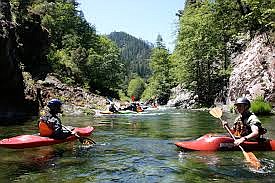Q. Our family is getting ready for spring break. What advice may BBB offer on safe travel and vacation?
A. Spring break is upon us and there is short time to finalize your vacation plans. Whether heading to the ski slopes or the beach, the Better Business Bureau advises consumers to do research before booking their next vacation.
A travel company can make the process of booking your spring vacation quick and easy. Using the wrong one, however, could turn your vacation into a nightmare.
In 2018, the BBB received more than 9,000 complaints against travel agencies and bureaus nationwide, such as online travel companies and ticket websites. Most complaints alleged consumers felt misled by travel offers that failed to deliver on promises. In some cases, consumers paid money for travel arrangements that were never made. In addition, the BBB recently issued another warning for consumers of the "Can you hear me now?" scam. The caller will ask if you hear them and if the consumer answers "yes" the caller explains you've won a free trip.
The BBB offers the following tips to ensure you're planning your vacation with a trustworthy business:
* Use a trustworthy travel company. Go to bbb.org to find a BBB Accredited Business and view the company's BBB Business Review for complaint history and customer reviews.
* Get everything in writing. Obtain copies of travel itineraries and booking confirmations. Remember to have copies of cancellation and refund policies as well.
* Read everything carefully before you sign. Sometimes there are hidden fees or clauses where they can change the airport you are flying into or out of without telling you.
* Verify reservations. Get the contact information of the airline, car rental agency and sleeping accommodations. Call to confirm all details. Don't rely solely on the word of your agent.
* Always pay with a credit card. This method provides additional protection if something were to go wrong with the travel reservation, as it allows you to dispute fraudulent transactions.
* Consider buying directly from the airline and hotel themselves. Many times, companies guarantee the cheapest possible fare and room rates on their own websites. Many resorts offer all-inclusive packages. If you are booking it directly through the resort's website, your chance of getting scammed drops immensely.
* Inquire about additional fees. Hotels, bed and breakfasts and other vacation rentals often come with resort or guest service fees, usually for services like internet, parking, fitness facilities or access to the pool. This can add to the per-night cost of your stay and may be mandatory, regardless of whether you use the services. Before booking a reservation online, contact the company to find out which additional fees will be added to the final bill.
* Be on the lookout for travel scams. In 2018, consumers reportedly lost almost $3 million to scams involving vacation, travel and rentals. Unsolicited mail, email and websites offering deeply discounted travel packages could leave you out of a vacation and money if you're not careful. Watch out for scams saying that you have "won a trip." Remember, if you have really won a free vacation, a legitimate company won't ask you to pay any upfront or processing fees.
* Follow your gut. If it sounds too good to be true, it probably is.
For more tips on how to be a savvy consumer, go to bbb.org.
Jim Winsett is president of the Better Business Bureau in Chattanooga
